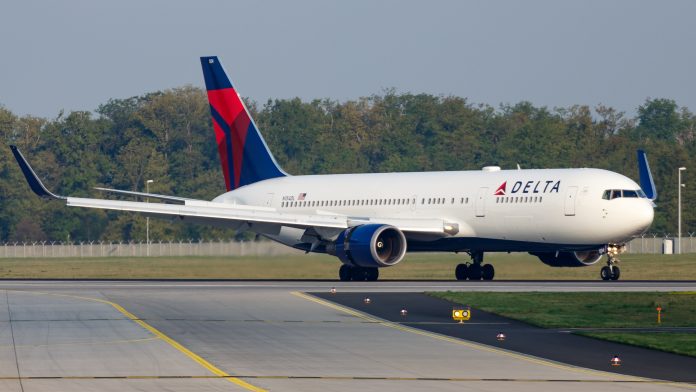Let foreign airlines serve domestic U.S. routes, as in Europe, and now Argentina, increasing capacity and reducing prices. (Opinion)
by Eric Boehm
The high demand for holiday travel means snarled security checkpoints and long waits at baggage claim, but it also comes with higher prices: The average domestic airfare over Christmas exceeded $320 this year. That’s actually quite a bit lower than last year, when average prices spiked to well over $400, in large part because “domestic airline capacity has come back to what we saw pre-pandemic, which means more planes flying than what we saw in past few years,” a spokesman for travel-booking website Hopper told CBS News last month.
More capacity equals lower prices. Hey, that might be something that federal aviation policy makers should keep in mind.
Here’s something else: Over the weekend, Argentina’s new, libertarian President Javier Milei announced a so-called “open skies” initiative that will scrap many of the regulations prohibiting foreign airlines from operating flights between Argentinian cities. Combined with the abolition of government price controls on airfares, the new rules will allow foreign airlines to directly compete with Aerolineas Argentinas, the national airline that has managed to lose an estimated $8 billion since 2008 despite having a monopoly on domestic flights.
America, thankfully, does not have a government-owned monopoly responsible for domestic air travel. However, the federal government does prohibit foreign airlines from operating flights between American cities. That means Americans have only a few choices when it comes to flying domestically—and on some less commonly traveled routes, maybe no choice at all.
Those restrictions on “cabotage” by foreign-owned and -operated airlines are naked protectionism for the shrinking number of American-based airlines. As always, consumers pay the price—and could reap the benefits of greater competition.
A 2020 paper by researchers at the Brookings Institution, Bayes Data Intelligence, and Washington State University, for example, found that American travelers would realize $1.6 billion in annual benefits from the entry of just one foreign airline into the U.S. market.
Some of those benefits would be rather straightforward: lower prices created by greater competition. But other benefits would likely materialize too. If given the chance to expand their operations into the United States, low-cost European airlines like Ryanair could bring their innovative business models to this side of the Atlantic.
Indeed, as the Cato Institute’s Scott Lincicome pointed out in a post for The Dispatch last year, the elimination of national monopolies and cabotage regulations in Europe during the 1990s has produced a flourishing market that includes legacy brands (like Air France and Lufthansa) along startups like Ryanair, WOW, and others.
The result: “These airlines have low prices, lots of fans, and (unsurprisingly) tons of capacity,” Lincicome wrote. In the United States, a similar arrangement could lead to “lower fares, more routes/capacity, more jobs—and no federal subsidies or brute force needed.”
Allowing foreign competition along domestic airline routes wouldn’t solve all the problems that naturally occur when millions of Americans decide to travel over the same weekend, of course. There are only so many seats in the airport bar, after all, and so far as I can tell, no airline in the world has solved the problem of screaming children.
Even so, more competition would force existing American airlines to offer better service or lower fares—things that would certainly ease some of that holiday travel stress. And more capacity means more opportunities to visit far-flung loved ones, not only during the holidays but throughout the rest of the year too.
And if famously over-regulated places like Europe and Argentina can embrace the benefits of competition in the skies, what the heck is America waiting for?
Originally published by the Reason Foundation. Republished with permission.
For more Budget & Tax News.











